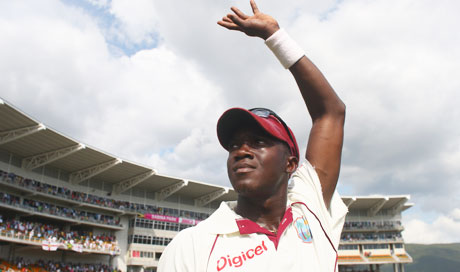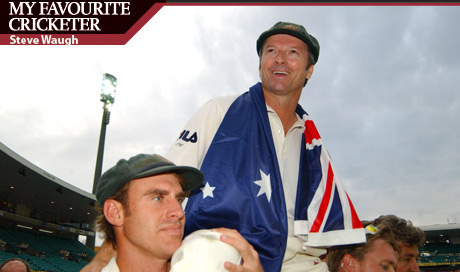Miles Jupp: A nightmare in every room
February 12th, 2009 by Miles Jupp in England
When I watch or listen to cricket I am just as superstitious as players themselves. If England are building a partnership I don’t like to move from my position, whatever that is. If we start losing wickets, then I try to move around a find somewhere to stand or sit that will bring us more luck. Saturday, in this regard, was a nightmare.
Some friends had come round for the afternoon, people without any regard for cricket’s more obvious aspects, let alone its subtleties and I was trying to keep an ear out for the score, while also attempting to be a generous and courteous host. Although we were in the sitting room, I was only allowed to have the radio on in the kitchen, and so whenever I heard any loud roar I would grab a random object from the table and say that I was off to refill it.
This system could only survive until the teams came off for lunch. Once play resumed, a fresh roar brought me and the teapot to the kitchen to hear the dismal news that Pietersen was out. I knew then that I would have to abandon our tea party and find a new location to bring us luck.
For six agonising overs I stood next to the fridge listening to Strauss and Collingwood do nothing. Then my wife came in to get milk out of the fridge, I had to move out of the way and Strauss knicked one to the keeper. I had barely had time to sit down on our bed before Collingwood succumbed to Taylor. People often talk about Collingwood’s gritty determination and nothing exemplified this more than his brave attempt to run two despite being bowled. Even though I was over 5,500 miles away, I knew he was out before he’d cottoned on to it.
I stood in our tiny hallway for just four deliveries, the last of which took the wicket of Prior. I was fast running out of places to go and so returned to our sitting room and guests.
“Oh you’re back,” said my wife, who’d been calling for some minutes inquiring as to my whereabouts.
It was not to be for long though as Stuart Broad had soon pushed a slow ball straight into the hands of Marshall at short leg.
“Can’t stay,” I said and left the room again. I had now exhausted all the rooms in the flat but one. And so it was that I spent the entirety of Flintoff and Sidebottom’s 24 run partnership pacing around in our bathroom. This was the most successful location I had yet encountered. Then the inevitable happened. People may think that their partnership ended because Sidebottom was trapped LBW but it was actually because one of our guests needed to use the lavatory.
England had two wickets remaining, and I still had two spots to find. I stood downstairs by our front door for 10 minutes until Harmison succumbed and had only just managed to perch myself onto a strange and hitherto unused microscopic mezzanine thing that juts out over the stairs when Flintoff was bowled.
England will hopefully take many lessons from their appalling display at Sabina Park, but what I learnt is that if they continue to play like this we shall need a much bigger flat.
Miles Jupp is an actor, comedian and cricket fan
Posted in England | No Comments »










